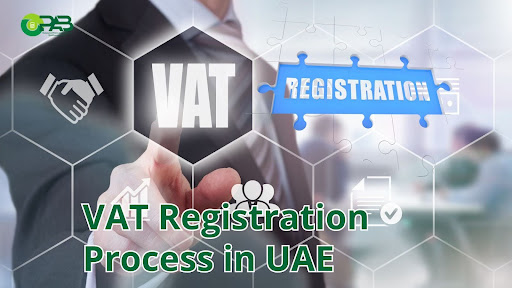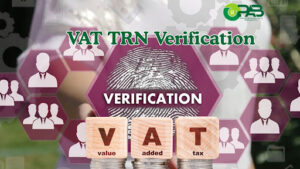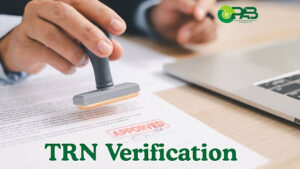If you run a business in the UAE, understanding the VAT registration process is one of your key responsibilities. VAT registration ensures your company can legally charge Value Added Tax, file returns, and claim input VAT on eligible business expenses. It also signals credibility and compliance with the Federal Tax Authority (FTA).
Whether you are just starting or expanding your operations, knowing how to complete the VAT registration process in the UAE helps you stay ahead of penalties and operate smoothly. Read on to learn the exact steps, requirements, and best practices to register successfully.
What is VAT and Why It Matters for Businesses in the UAE
Value Added Tax (VAT) is a 5% consumption tax applied to most goods and services sold in the UAE. It was introduced on January 1, 2018, to support the country’s economic diversification and strengthen public services.
Registering for VAT through the Federal Tax Authority (FTA) allows your business to:
✅Charge VAT on taxable goods and services
✅Reclaim VAT paid on eligible purchases
✅Build transparency and trust with partners and clients
📚 Also read: Tax Compliance UAE: Expert Guidance for Businesses
Who Needs to Register for VAT in the UAE
VAT registration is based on your business’s annual taxable turnover. The UAE applies clear thresholds that determine whether registration is mandatory or voluntary.
Mandatory VAT Registration
- Businesses must register if taxable supplies and imports exceed AED 375,000 per year.
- Non-resident businesses making taxable supplies in the UAE must register regardless of turnover.
- Failing to register when you reach this threshold can lead to administrative fines and backdated liabilities.
Voluntary VAT Registration
- Businesses can register voluntarily if taxable supplies or expenses exceed AED 187,500 per year.
- This helps startups and small companies appear credible and claim VAT on their purchases.
📚 Also read: Is Corporate Tax Registration Mandatory in the UAE?

Step-by-Step VAT Registration Process in UAE
The VAT registration process is completed online through the FTA’s EmaraTax portal. Here’s how to register step by step.
Step 1: Prepare the Required Documents
Before starting, make sure you have:
- A valid trade license
- Emirates ID and passport copies of owners or partners
- Business address and contact information
- Bank account details (IBAN)
- Proof of annual turnover, such as invoices or financial statements
- Power of attorney (if someone is applying on your behalf)
Double-check that your documents are clear and match your trade license to avoid delays.
Step 2: Create an Account on the EmaraTax Portal
- Visit tax.gov.ae and register for an EmaraTax account.
- Confirm your email and log in to the dashboard.
- Select “Register for VAT” under tax services to start your application.
This platform also allows you to file VAT returns, make payments, and manage tax records after registration.
Step 3: Complete the VAT Application Form
You’ll need to enter the following details:
- Business name and activity description
- Turnover and taxable supplies for the last 12 months
- Expected sales and expenses for the next 30 days
- Import and export activities
- Authorized signatory details
- Preferred tax period (quarterly or monthly, based on turnover)
Review your information carefully before submission. Inaccurate or incomplete details can cause rejection or delays.
Step 4: Submit Your Application
- Once the application is filled out, click Submit for review.
- The FTA does not publish a fixed processing time. Approval depends on the completeness of your documents and any follow-ups required.
- When approved, you’ll receive your Tax Registration Number (TRN), which serves as your VAT certificate.
Your TRN must appear on all official invoices, contracts, and business communications.
Documents Required for VAT Registration in UAE
The FTA requires several documents to verify your business information. Prepare and upload:
✅Trade license copy
✅Passport and Emirates ID of the authorized signatory
✅Business address and contact details
✅Financial records and invoices for the past 12 months
✅Bank account details and IBAN
✅Customs codes (for businesses that import or export goods)
Businesses using Odoo, Zoho Books, or QuickBooks can easily generate compliant reports. For a smooth setup, OPAB helps companies automate VAT reporting and align accounting records with FTA standards.
How to Check VAT Registration Status in UAE
You can monitor your application progress directly from your EmaraTax dashboard. Once approved, your TRN will be listed there.
To confirm your VAT registration or verify another business’s TRN, use the FTA’s public verification tool available on the EmaraTax portal under “Public Services.” A valid TRN confirms your business is authorized to charge and collect VAT in the UAE.
Timeline and Cost of VAT Registration
- Cost: Registration through the FTA website is free.
- Processing time: There is no official timeline, but applications are typically reviewed within a few weeks if complete.
- Optional costs: Consultancy fees may apply if you hire a tax agent or accounting firm.
Partnering with experts like helps ensure your VAT application is error-free, especially if your business operates across multiple emirates or has complex financial structures.

After Receiving Your VAT Registration Number (TRN)
Once your business is VAT registered:
- Display your TRN on all invoices and receipts.
- Charge 5% VAT on taxable goods and services.
- File VAT returns every quarter if annual turnover is below AED 150 million, and monthly if it meets or exceeds this level.
- File VAT returns within 28 days after the end of each tax period.
- Keep organized financial and VAT records for at least five years, and 15 years for real estate records.
If you need assistance with VAT filing or automation, OPAB can integrate accounting systems that simplify compliance and reduce audit risks.
Penalties for Not Registering for VAT in the UAE
The FTA imposes penalties for businesses that fail to register or file VAT on time.
Common fines include:
✅AED 10,000 for late VAT registration
✅AED 1,000 for a first late VAT return and AED 2,000 if repeated within 24 months
✅Late payment penalties starting at 2% immediately after the due date, plus 4% monthly, up to 300% of the due amount
Avoiding these fines is simple if you stay proactive about registration and compliance.
📚 Also read: Transfer Pricing Documentation in UAE for Tax Compliance
Common Mistakes During VAT Registration
To prevent registration issues, avoid:
✅Submitting incomplete turnover reports or missing documents
✅Using outdated trade license details
✅Failing to select the correct business activity
✅Entering inconsistent data between the license and the financial statements
Verifying each step before submission ensures faster approval. Many UAE businesses choose OPAB for expert VAT support to avoid these common errors.
Maintaining VAT Compliance After Registration
After registration, compliance is an ongoing responsibility. Businesses must:
✅Record VAT collected and paid using accounting software
✅File returns accurately before deadlines
✅Retain all VAT invoices and records for the required retention periods
✅Ensure tax invoices meet the Executive Regulations content requirements
✅Stay informed about upcoming e-invoicing mandates from the FTA
Proper record keeping allows you to reclaim input VAT and prepare for audits confidently. Firms like OPAB help UAE businesses maintain complete compliance and streamline VAT filings.
Conclusion
The VAT registration process in the UAE is straightforward when you prepare the right documents and follow the FTA’s EmaraTax system carefully. Registering ensures your business stays compliant, trustworthy, and financially transparent.
If you need expert support for setting up accounting software or ensuring smooth compliance with tax and accounting requirements, consider reaching out to Outsource Prime Accountants and Bookkeepers (OPAB).
OPAB helps businesses across Dubai and the UAE implement and optimize software like Odoo, Zoho Books, and QuickBooks, ensuring accuracy and full VAT compliance.
Contact OPAB today for tailored guidance that fits your business needs.
Frequently Asked Questions (FAQs)
How much does it cost to register for VAT in the UAE?
VAT registration through the FTA website is free, though businesses may pay consultant fees if they need professional assistance.
Do all companies need to register for VAT in the UAE?
Only businesses with annual taxable supplies above AED 375,000 must register. Those earning above AED 187,500 can opt for voluntary registration. Non-resident businesses making taxable supplies must register regardless of turnover.
What documents are required for VAT registration in the UAE?
You’ll need your trade license, Emirates ID, passport, business contact details, and proof of turnover.
Who is exempted from VAT in the UAE?
Exempt sectors include residential rent, local passenger transport, and certain financial services.
Zero-rated sectors include qualifying education, qualifying healthcare, exports, and international transport.









